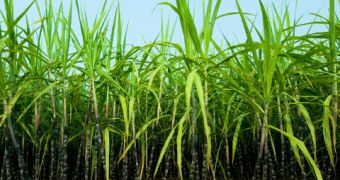Up until recently, bioethanol production was based on using massive amounts of glucose, which more often than not was extracted from sugar cane or starch crops. This means that, in order to produce this environmentally-friendly fuel, food resources had to be sacrificed.
However, scientists working with BioMed Central now argue that by letting go of glucose and turning towards xylose instead, bioethanol production could still be efficient, while our food industries would remain unaffected.
The only problem with using xylose instead of glucose was that the yeast previously used to make ethanol found itself in an impossibility to process the former chemical compound as efficiently as the latter.
The good news is that a novel strain of yeast that these researchers successfully produced shows improved xylose tolerance and therefore eases the path towards more financially-friendly ethanol.
In plain words: a new type of yeast is likely to soon allow us to make bioethanol from xylose, therefore cutting down on this industry's dependence on glucose.
In turn, this might lead to cheaper biofuels, which means that both the environment and national economies would only have to benefit.
Anli Geng, the scientist in charge of this research, explains how “We produced a hybrid yeast, capable of producing bioethanol from xylose, which was also able to survive in high concentrations of ethanol.”
The specialists also adds that “This yeast is only a prototype and further improvement is possible before scale up. However, our results show that there is a future in recycling waste vegetation into bioethanol.”
As explained on Alpha Galileo Foundation's website, xylose is highly abundant in plants and organic waste, so access to this resource would not be a problem.
From where we stand, it is a good thing that continuous efforts are made to improve on our present days' biofuel production, especially given the fact that fossil fuels and similar energy sources need be put behind us as soon as possible.

 14 DAY TRIAL //
14 DAY TRIAL //